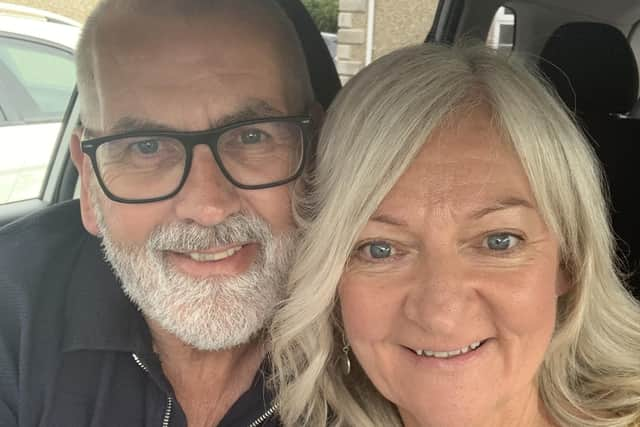Ballymoney foster carers needed: Mandy shares her personal story
and live on Freeview channel 276
Fostering Care Associates (FCA), one of the largest fostering groups in the UK, are looking for fosterers in the Ballymoney area.
After seeing an advert on TV, which piqued her interest in fostering as a child, Mandy Steele knew it was the path for her when she met her husband, Peter, whose parents had been foster parents for over 40 years.
Advertisement
Hide AdAdvertisement
Hide AdWhen they first enquired with their local trust, they were looking for full-time carers, which the couple were not quite ready for, so they became respite carers for children and adults with special needs, which could be done on weekends, around their full-time jobs - a role which lasted 13-and-a-half years.


Mandy said: “My older brother has special needs, so I’d helped to look after kids and adults with special needs.”
“If you are interested in fostering, becoming a respite carer can provide another option to full time fostering. You find out what it’s like to have a child in your home. Every child is different and will bring something different to the placement. Respite gives you the opportunity to test the waters and see ‘is this for me?’ We’ve done respite for nearly 20 children during our time and it gave us the experience to work with different personalities and family dynamics too.”
The couple made the move to becoming full-time foster carers 13 years ago and have had several long-term placements, including two sets of brothers and a young girl with special needs.
Advertisement
Hide AdAdvertisement
Hide Ad“Our first placement was caring for two brothers aged 8 and 10 and they are still with us today, now they’re 23 and soon to be 22. One of them got engaged recently to his long term girlfriend, which was fantastic. When they first came to us, they couldn’t read and were really struggling at school, but both ended up doing well at school and are now in full-time jobs. Both their lives have changed,” said Mandy.
“Seeing their lives change, seeing them settled and doing well; they are just part of the family. Something that to a child in a ‘normal’ family could be small, could be a huge first for one of our children, you know? Getting to be ‘pupil of the month’, that we know has been a struggle, is so significant to them and means so much. Even them saying ‘I love you’, or giving you a hug - it’s just amazing. ‘Tiny steps’ can be big things for our little ones.”
“It’s incredibly rewarding because we’re helping to change history in that child’s life. The care system is a cycle, their parents have probably gone through the same thing. The children who come through our doors, by giving them that stable home, stable environment, their lives can be changed so that their children’s lives can be changed.”
But fostering isn’t without its challenges. For Mandy, dealing with different behaviours can be “difficult” - especially during the pandemic, which had a negative impact on behaviours - so it’s important to equip yourself with as much information as possible.
Advertisement
Hide AdAdvertisement
Hide AdShe said: “Behaviour is a difficult area to manage. When a child is angry, it’s hard to put your emotions to the side and think ‘they are doing this for a reason’, because you are feeling hurt. There is always a reason behind the behaviour and it’s all about helping the child to work through it.”
“FCA has been supportive and respite care is so vital to us now we are full time carers. We need a break to recharge but you can sometimes worry about how this is going to work out for the children. Is it going to be good and positive?”
“I’d recommend doing as much reading as you can on things like trauma, attachment disorders. The more information you have, the more prepared you can be. A lot of the children come from trauma, so equip yourself to help the child and understand why those behaviours are happening.”
“Don’t give up at the first hurdle; stick it out. That’s when you see the change and the benefits. It might be small, but look for the small things and when they happen, enjoy them.”